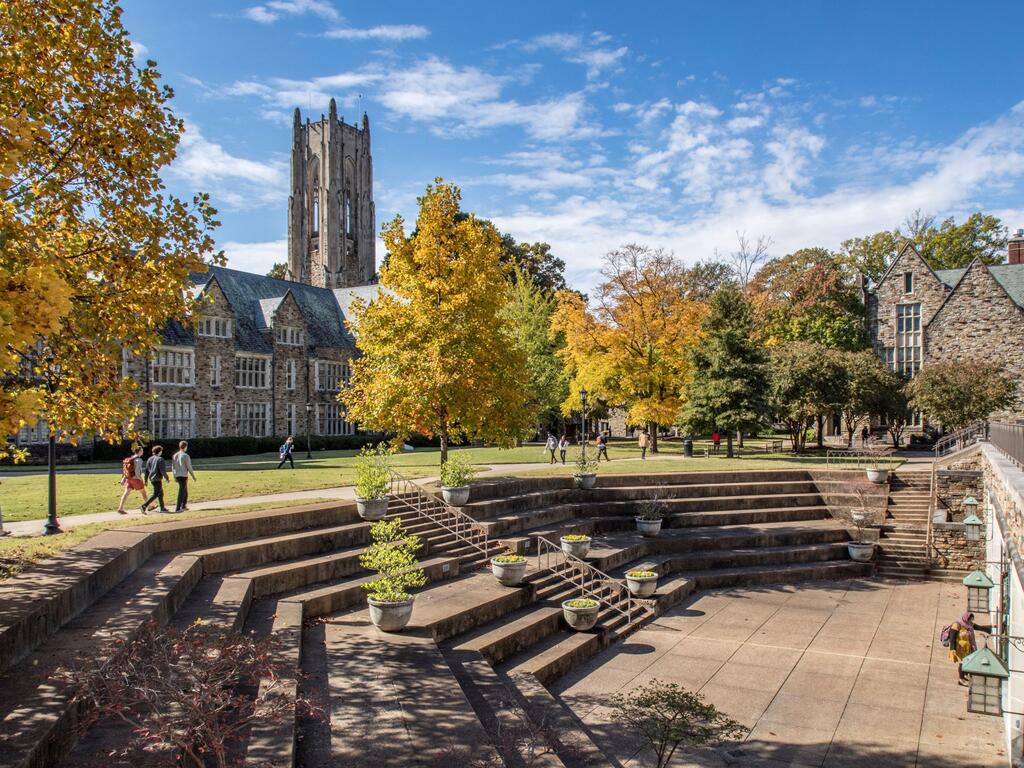Rhodes College has been awarded a $500,000, three-year grant from the Mellon Foundation to expand and enrich its innovative Liberal Arts in Prison Program.
The Rhodes program began in 2016 with a weekly Great Books Reading Group at the Women’s Therapeutic Residential Center (WTRC), a state prison in Henning, TN. Dr. Stephen Haynes, professor of religious studies, is the founder and director of the program, which has taken 40 Rhodes faculty to Henning to teach at WTRC during the program’s nine years of operation. In addition, more than 80 Rhodes students have served as teaching assistants and peer tutors, most having been trained in Haynes’ campus course, Mass Incarceration: Theoretical and Practical Perspectives.
In 2019, the college launched at WTRC a two-year, four-course Certificate of Liberal Arts, modeled after Rhodes’ signature Search program, an interdisciplinary humanities sequence introducing students to a broad range of texts and critical thinking skills. Many incarcerated students who earn the Rhodes Certificate of Liberal Arts at WTRC continue their education, some pursuing associate degrees through a partnership with Dyersburg State Community College. As of spring 2025, 92 incarcerated women at WTRC had accumulated 765 Rhodes credits, with 32 earning certificates.
Mellon funds will support a new Bachelor of Arts in Liberal Studies offered at WTRC, recently approved by the Rhodes faculty. In addition, the grant will support the expansion of educational programming to the men’s facility at West Tennessee State Penitentiary and workshops for faculty at other colleges in Tennessee and the Southeast interested in launching prison education programs.
“If anyone doubts the life-changing impact of a liberal education, they need look no further than the work that Prof. Haynes and many of our faculty have done at the women’s prison in Henning, Tennessee,” said Dr. Timothy Huebner, provost and vice president for academic affairs. “I am thrilled that the Mellon Foundation will help advance this important work.”
Haynes highlighted that the impact of postsecondary education in prisons is well-documented, citing a study that found participation in prison-education programs reduces recidivism by 43 percent and improves employment chances by 13 percent. “And the Rhodes Liberal Arts in Prison Program has a transformative effect not only on the incarcerated women it enrolls, but on the faculty and students who interact with them as well,” said Haynes.
About the Andrew W. Mellon Foundation: The Andrew W. Mellon Foundation is the nation’s largest supporter of the arts and humanities. Since 1969, the Foundation has been guided by its core belief that the humanities and arts are essential to human understanding. The Foundation believes that the arts and humanities are where we express our complex humanity, and that everyone deserves the beauty and empowerment that can be found there. Through grants, the Foundation seeks to build just communities enriched by meaning and guided by critical thinking, where ideas and imagination can thrive. Learn more at mellon.org.
